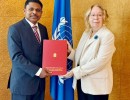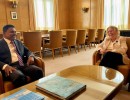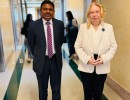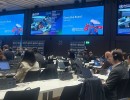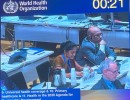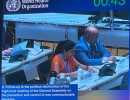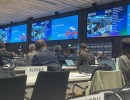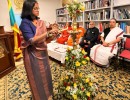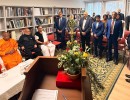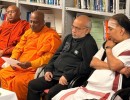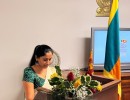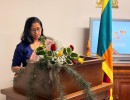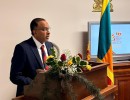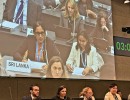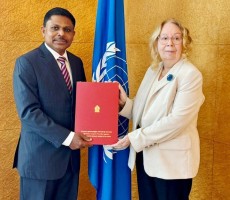
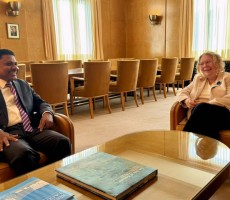
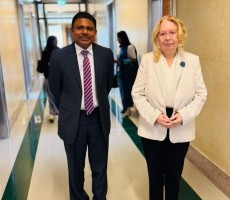
Ambassador Sumith Dassanayake, the newly appointed Permanent Representative of Sri Lanka to the United Nations Office at Geneva and other International Organizations in Switzerland presented his Credentials to the Director General Tatiana Valovaya of the United Nations Office at Geneva on February 17, 2026.
158th Session of the Executive Board of the World Health Organization
Statement by Sri Lanka
Agenda Item 13: Report of the Expert Advisory Group on the WHO Global Code of Practice on the International Recruitment of Health Personnel
Thank you, Mr. Chair,
Sri Lanka welcomes the report of the Expert Advisory Group on the WHO Global Code of Practice on the International Recruitment of Health Personnel presented by the Director General.
Sri Lanka, which provides free education and free health services for all its citizens, concerned on the high mobility of health professionals abroad. It affects the country in providing better health services to its people, especially during emergency periods. Further, we have had to bear significant financial losses after investing in producing our own health professionals.
Sri Lanka emphasizes that the establishment of co-investment in health workforce development and health system in the source country is essential in order to support health sustainability in both source and destination countries.
Sri Lanka calls for effective and invigorated implementation of the WHO code for international recruitment of health personnel for safeguarding the global health security.
Thank you
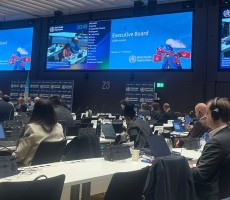
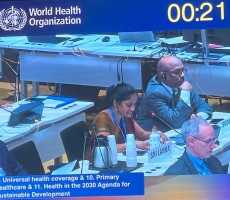
158th Session of the Executive Board of the World Health Organization
Statement by Sri Lanka, 02 February 2026
Agenda Item 10: Primary Healthcare
Thank you, Mr. Chair,
Sri Lanka takes positive note of the report by the Director-General on Primary healthcare. We appreciate the activities, initiatives and efforts carried out and made by the WHO in collaboration with other partners to advance universal health coverage, with primary healthcare - oriented reforms as the cornerstone.
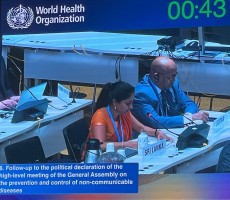
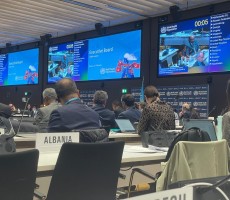
158th Session of the Executive Board of the World Health Organization
Statement by Sri Lanka, 02 February 2026
Agenda Item 06: Follow-up to the political declaration of the high-level meeting of the General Assembly on the prevention and control of non-communicable diseases
Thank you, Mr. Chair,
Sri Lanka takes note of the report by the Director General.
Sri Lanka insists that early investment in prevention and treatment measures on NCD should be continued and delivery of quality primary health care should be further strengthened.
Further, we emphasize that awareness and outreach, including through education, on physical activity and oral health should be expanded among communities, for better understanding on the importance of well-being.
Mr. Chair,
With regard to the proposed draft resolutions, Sri Lanka is pleased to co-sponsor the draft resolution on ‘Global Action to Advance Health Equity for People with Hemophilia and other bleeding disorders’, which received cross regional support. Sri Lanka thanks the leaderships of Armenia and Morocco.
At present, about 500,000 individuals are living with Hemophilia globally and about 1500 of these individuals are in Sri Lanka. According to the Annual global survey 2024 by the World Federation of Hemophilia, in Sri Lanka, children under 13 years show a high percentage of disorders with Hemophilia A and B.
Sri Lanka acknowledges that at present, there is no definitive care for Hemophilia and significant innovations are introduced to treat them. The lack of diagnosis and lack of data pose challenges in identifying and taking necessary measures to treat people with Hemophilia and other bleeding disorders.
Sri Lanka joins with others and requests the Executive Board to endorse this important resolution by consensus, with a view to advancing the health equity for people with Hemophilia and other bleeding disorders.
Thank you
View PDF
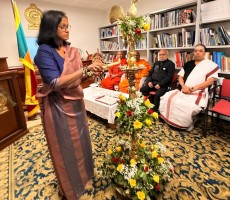
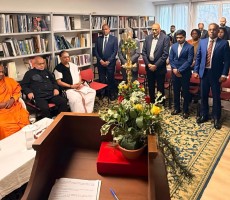
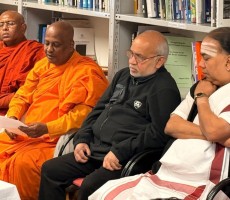
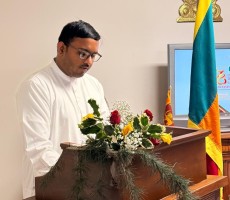
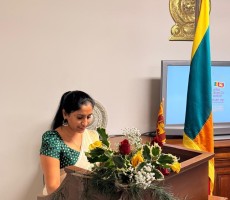
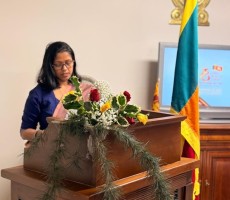
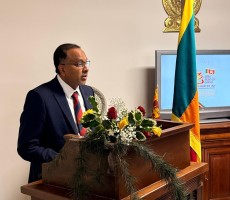
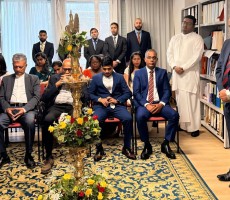
The Permanent Mission of Sri Lanka to the United Nations in Geneva celebrated the 78th Anniversary of Independence Day of Sri Lanka with a multi-religious ceremony attended by the representatives of Sri Lankan Community and the Mission staff.






Sri Lankans living in Switzerland joined with the Permanent Mission of Sri Lanka to provide essential supplies following the devastating impact of Cyclone Ditwah. A consignment of disaster relief items including high pressure cleaners, kitchen utensil sets, sanitary items, cleaning items, baby care products, school bags, clothes etc. was air-lifted with the support extended by AERO Logistics in Zurich for immediate transport to the Disaster Management Centre in Colombo, on 11 January 2026.
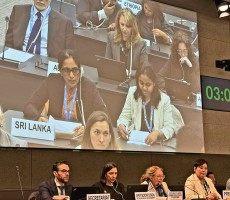
Conference on Disarmament – 27 January 2026
Statement by Her Excellency Himalee Arunatilaka, Ambassador and Permanent Representative of Sri Lanka to the United Nations in Geneva
Madam President,
Madam Secretary-General
Excellencies, Distinguished Colleagues
It is with deep honour, respect and gratitude that I take the floor today for the last time in my capacity as the Permanent Representative of Sri Lanka to the United Nations in Geneva, and to the Conference on Disarmament. I will be concluding my tenure and returning to Sri Lanka in a few days on the conclusion of my tenure in Geneva.
- Prime Minister Dr. Harini Amarasuriya Participates in the Annual Meeting of the World Economic Forum in Davos
- The Permanent Mission of Sri Lanka handed over the consignment of relief items to AERO Logistics in Zurich
- The Permanent Mission of Sri Lanka in Geneva and the Consulate General Office in Switzerland, commenced the Work Year 2026 with renewed hopes and determination to committ to the rebuild Sri Lanka effort.




